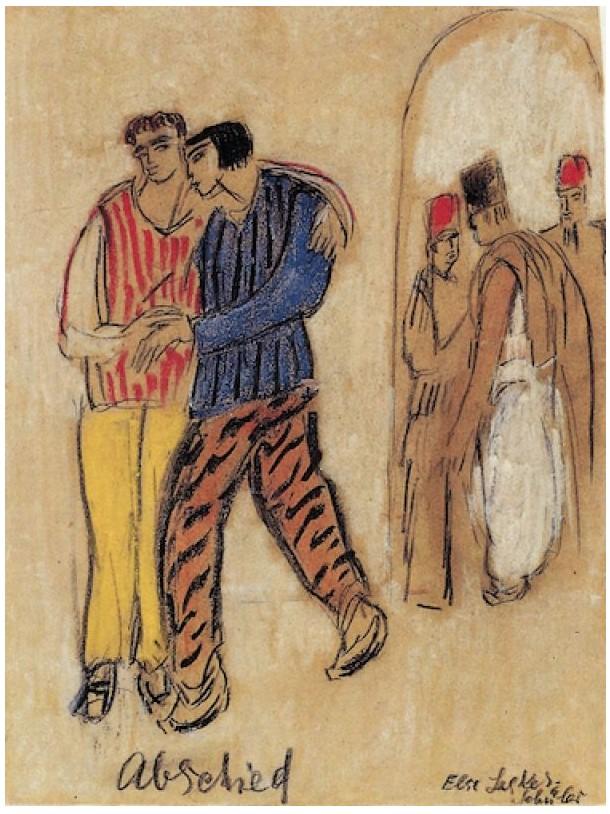Bias and Change
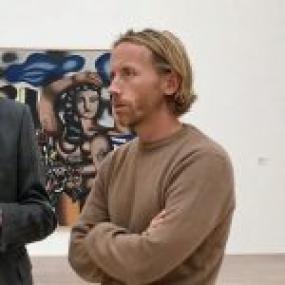
Dr David Baglow is a Dual Trainee based in KSS
In this blog, David describes bias and how it can have a profound effect on people’s lives. Implicit or unconscious bias may be described as attitudes that affect our understanding, perceptions, actions, and decisions without us having an awareness of their effect on us.
They are generated by exposure to our social and cultural environments and this can happen as a result of exposure to stereotypes. These stereotypes are the product of multitudes of implicit and more explicit biases and again we may be unaware that our perception of our world is affected by them.
In medicine, stereotypes borne of implicit and explicit biases can negatively affect the perceptions we have about certain professional groups, and patient groups. Read more from David about his perceptions of bias and how it can affect all of us in the way we interact with the world.
Foreword by Dr Rosie Baruah
Bias and Change
I find it hard to understand how we can work in an environment that helps the health of everyone, yet at the same time it can potentially be a workplace that gives some colleagues a harder path to tread. Physical health and mental health come hand in hand. It’s something I have observed to different degrees for decades, in different walks of life but, as time has passed I have become more and more flummoxed. Partly by the cause and partly by its potential remedy. A phrase that you come across is ‘unconscious bias’. It’s used to explain how something that essentially has no spine, is able to stand in our culture.
A German Art Gallery and Else Lasker-Schüler
In a German art gallery I came across a painting of a woman that for some reason moved my soul. It was the words from Frieder, a German friend who was stood next to me, that flipped a coin in my head. ‘Conscious bias’.
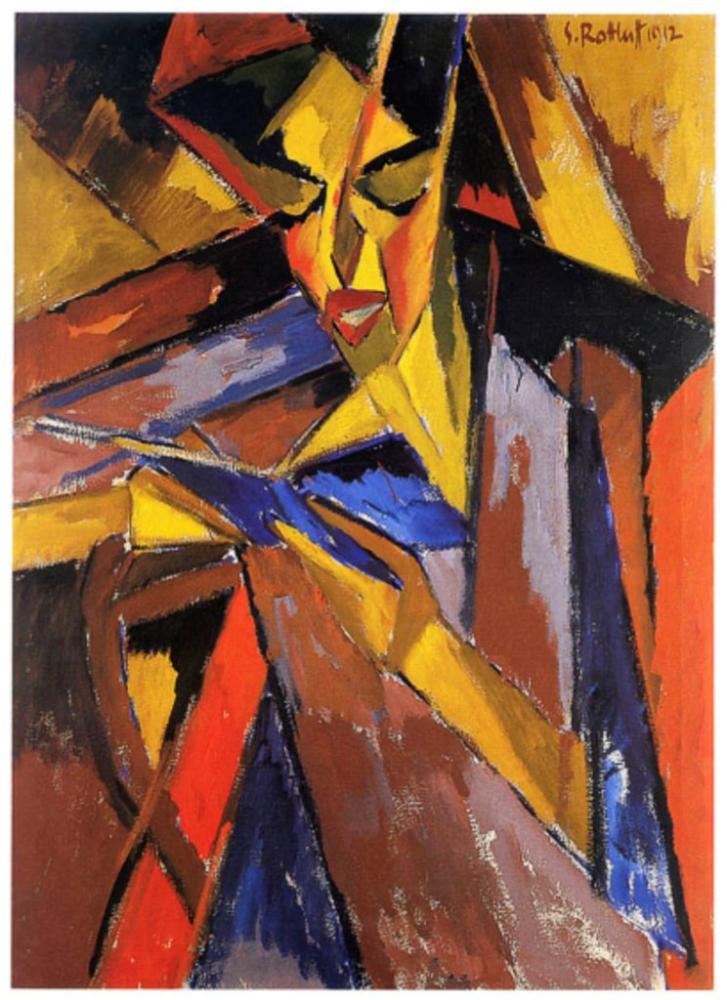
This is the painting of Else Lasker-Schüler by Karl Schmidt-Rottluff called ‘woman reading’ that I stood opposite last year. Apart from being an award winning poet she was also one of the few women involved with the expressionism art movement.
Else Lasker-Schüler was born in 1869 in Elberfeld (Wuppertal, Germany). She is one of the most original and talented poets of the 20th century but was also highly regarded for her plays, short stories, essays and artwork. She received the Kleist prize in 1932, the highest German literacy award and was considered a key figure in the expressionist movement as she moved within Berlins bohemian circles.
She described our eyes in a way that can be interpreted as them being a window into our souls. She described her second eye in her writing, which was a reference to there being a ‘public her’ and then an ‘internal her’. First eye and second eye. It’s a part of psychology that now exists.
Conscious bias, I think, explains why she sadly did not feel part of a social or cultural circle during her lifetime. There is sadly an endless list of factors that cause suffering but culturally they include where individuals ancestors were from, their nationality, their religious beliefs (or not) and their gender. These factors can deteriorate and end people’s lives arguably as a consequence of inaccurate thinking. In this instance, I’m not writing about the tens of millions that died because of the Second World War, but instead Else the Queen of Expressionism.
She was born in Germany with a Jewish father who was of Egyptian descent. She had a profoundly negative first two decades because of deaths, caused by illness, to her brother, mother and son. The conscious bias of that time meant that as time moved on she didn’t feel part of German society, and for some reason she also felt detached from Jewish life. She knew she had been born into a Jewish family, but apparently she wasn’t part of the Jewish traditional way of living. The growing anti-semitism she experienced at that time coincided with her beginning to read the bible. The Nazi party came into national power two years before she won the Kleist prize. As a consequence of the harsh cultural conscious bias of that time, she sadly became destitute and reliant on financial help from friends, a lot of whom were artists. The Nazi party, and specifically how bias can be generated, is the reason why national referendums are now not allowed in Germany.
She was sadly brutally attacked more than once. After her first attack from rod-wielding Nazi party supporters, she left Germany without telling anybody and she fled to Switzerland. She was initially listed as a missing person by her friends in Germany.
She was eventually stripped of her German citizenship and her expired visa in Switzerland meant she eventually moved to Jerusalem in 1937. The area that she referred to as the ‘dream of the Holy land’. She wrote poems portraying her feelings of the stress that she felt. Witnesses in Jerusalem documented that for six years she dealt with poverty, illness and solitude. She apparently spent time feeding the street cats and birds. They were sadly the last six years of her life and she passed away in Jerusalem just before the end of the war and before she could return to the people she cared about in Germany.
Her funeral in January 1945 was apparently was one of the few occasions that German was allowed to be spoken in a public place in Palestine. The reason was to permit the reading of the poem that she had written towards her end.
I know that I must die soon.
Yet all the trees are radiant
After summer’s long-awaited kiss-
My dreams grow gray-
Never have I written a Sader ending
In my book of rhymes.
You pluck a flower for me-
I loved it in the bud.
Yet I know that I will die soon.
My breath hovers over the river of god-
Softly I set my foot
On the path to my long home
It felt like Else was introduced to me by Frieda and his explanation of the painting. His son Mattes is someone that I got to know growing up and talking to him about Else and the effects of conscious bias drew relevance for me between how things used to be and how they are now.
Translation
After my last visit to Wuppertal and spending time with a family that feels like it’s mine, Mattes sent me a text. My set task was to try and translate all of it. The German text was well above my ability and it was kindly translated by my father. My mother said it kept him quiet while she read the paper! Reading the translation, I was blown away. It, in my opinion, talks about conscious bias. Mattes text was received with others and I presumed that this was a quote from Else. It turns out they were lyrics for a song he had written himself. A song about the growth of populist movements. She is not alone.
The Simple Way
They noticed sometime that life is much better if, instead of thinking about it, they explain their own world in their own terms.
At some point they have realised that it is easier to support each other’s views than actually to analyse the problems.
They act as if they know it all, displaying smugness, and if they run out of arguments all they have left is violence.
History is not their strong suit but if they do make use of it, it is so distorted that they turn biased interpretation into truth.
And they all sing from the same song sheet in their fear of showing any humanity.
They find it all too easy to hate and to be full of spite and to get worked up, but their fear is always present, it always remains despite all their lies.
It is the driving force behind everything they do and say.
Perhaps they were once small, perhaps sensitive and alone but that is now in the past and long gone.
Every day is a new day, the Führer speaks and they blindly repeat his words.
Every problem can be solved in this way, and without proper analysis.
Populism is the order of the day, emotions are given free rein.
Ignorance and self-righteousness become a sport for the masses.
They have decided that this is the simple way, the straightforward way to a purely sham existence.
Translation of German lyrics written by Mattes Boxberg
When we are at work, observing how people are with each other isn’t a binary process. Sometimes the more we look into something the more we can realise what don’t know. That’s medicine.
If environments are created, with conscious or unconscious bias, then it’s still possible for us to improve the environment we all live in. You could argue that the difference between sane and insane is our aptitude to accept change, or be in denial about it…
Let me explain.
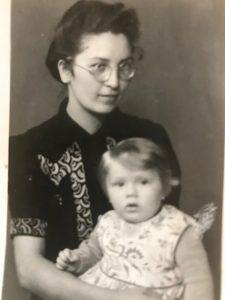
My Family
Maria Schneider was born in 1919 and suffered from meningitis which left her deaf. The conscious bias of that time meant that she was in line to be ‘sterilised’ along with her fellow pupils in her school for ‘the deaf and dumb’. She was not sterilised because it was eventually understood that her deafness was acquired and not innate.

Maria’s sister was called Hildegard and they lived in the Ruhr Valley. Hildegard had a boyfriend called Helmut Ramacher who was became a lance-corporal in the German army. He wrote to Hildegard a lot whilst he was away but he sadly died just before his twentieth birthday on the ‘Eastern front’.
Time passed and my grandfather Cecil was in Germany during the occupation. Hildegard met and married him. My mother was born in Germany in 1947 where she lived for a couple of years before they moved to the UK.
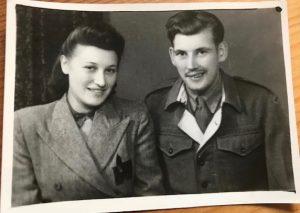
She was one of the earliest German wives to live in the UK and was really well received.
It’s really difficult to talk about things that I was not part of, but I still have strong feelings. Conscious bias arguably was a key factor in generating a world war and putting millions of peoples lives in hardship and death. Without the war I wouldn’t be alive. What does that mean? Is that an argument for silver linings? I don’t think so. It shows that no matter how horrific a situation, or how much bias can afflict peoples lives, there’s an opportunity to move on. Life goes on, whether or not it’s ours, and opportunities will exist to develop change. Everybody we know in the world is on a page that is turning onto a new chapter at the moment, and I really hope that we can see that we should all be equal.
I don’t understand why when you read about Else you can also read about her relationships and marriage. Why do websites go into detail to describe them but are not equal in detail of their description of other things in her life. This woman was literally beaten and ostracised because of her gender, ancestry, race and religion. There is nothing that can be said to ethically justify the human conflict that she suffered, but having understanding of the conscious bias of that time helps us to understand how it happened.
Times have changed but it’s so important that we do it consciously and make sure that how interact with everyone is correct.
How do we deal with bias
Hildegard was able to hide at school that she had Jewish family. Else wasn’t. Equality is one thing but hiding from bias is another. No one should need to hide themselves, even at work. Having vanity metrics in all walks of life is arguably a step forward, but to ensure that we have equality for everyone is such an important direction to head. I don’t want to wait my entire life to arrive at our destination. Else Lasker-Schüler once said ‘ I do not know the speech of this cool land. I cannot keep its pace’. I think speech is the exact same as thoughts. Thoughts could be ideas that are heard and credited. Let’s grab our ideas and try to arrive at the correct destination. Stop tolerating crazy bias, consciously or un-conciously, and build our valuation of people for who they really are.
People, languages, cultures and religions are different. That’s normal. So it’s time now for us to stop judging people for their differences and try and delete any unconscious bias. Continue being yourself and care for everyone. That includes you.
